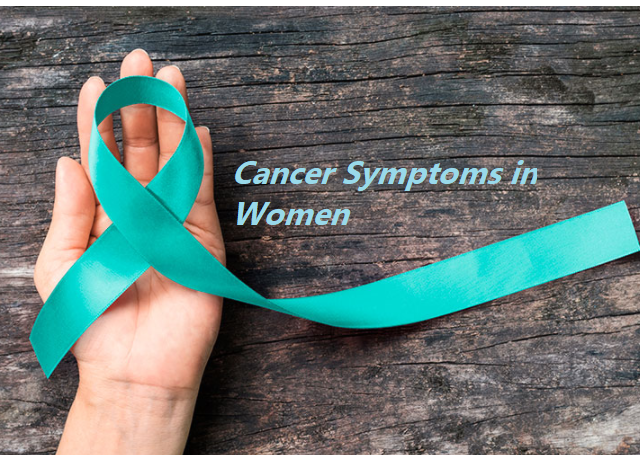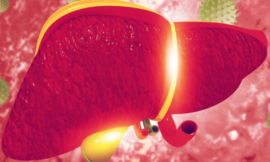Women’s body chnages lots as ages goes,so some normal changes are ok, but if you notice any new signs or symptoms, you need to checked out by your doctor.Cancer may not be on your radar, especially if you’re relatively young and healthy. But it should be, regardless of your age or family history.
The signs of cancer, particularly gynecologic cancers, can be vague and similar to those of other conditions. Only breast and cervical cancers can be detected through screening. So recognizing these symptoms and talking about them with your gynecologist or primary care doctor can increase your odds of finding cancer early, when it’s most treatable.
Check if you have any symptoms like following , you should check with your doctor;
1. Abnormal periods or pelvic pain
Abnormal periods are not uncommon. Your period can be impacted by many factors such as pregnancy, menopause, obesity, thyroid conditions, endometriosis, benign ovarian cysts, or even stress. However, when you begin to have sudden, significant changes in your cycle, it is time to see a doctor. Changes such as having significantly heavier periods month after month should be looked into. Pelvic pain and irregular bleeding can be a sign of cervical, ovarian, or other gynecological cancers.
2. Breast or Nipple Changes
A lump doesn’t mean you have breast cancer. But get a new one checked out, especially if it sticks around for longer than a couple of weeks.
Other symptoms to watch out for include:
- A swollen breast (with or without a lump)
- Lump in your armpit or collarbone
- Nipple discharge, either bloody or clear
- Nipples that point inward
- Skin that looks like an orange peel (dimpling)
- Breast or nipple pain
- Red, itchy, or thick nipple or breast skin
Some experts think it’s a good idea to check your breasts and underarms once a month.
3. Unexplained weight loss
If you’re overweight or obese, losing weight by exercising and making healthier food choices can actually help curb your cancer risk. But if you suddenly lose more than 10 pounds without changing your diet or exercise habits, talk to your doctor.
4. Bowel Changes
Bowel changes can be a sign of colorectal cancer. That affects your rectum and colon. It can look like hemorrhoids, irritable bowel syndrome (IBS), or inflammatory bowel disease (IBD). Women could confuse some colorectal cancer symptoms with premenstrual syndrome (PMS) or their periods.
If you have any symptoms like:
- Diarrhea
- Constipation
- Thin, dark, or bloody poop
- Belly pain or cramps
- Weakness and tiredness
- Unexplained weight loss
then you shuls tell your doctor.
5. Constant fatigue
A busy week can wear anyone out. But in most cases, a little rest should cure your fatigue. If fatigue is interfering with your work or leisure activities, stop blaming your hectic life and see your doctor.
6. Bloating
It’s normal to feel puffy after a big meal or before your period. But tell your doctor if you’re visibly bloated every day for a few weeks. It could be a sign of ovarian or another kind of cancer.
7. Skin Changes
Skin cancer is the most common form of cancer. Moles that are changing, irregular in shape or color, or asymmetrical are common signs of skin cancer. But other skin changes can be signs too, including changes in skin pigmentation, bleeding, or excessive scaling. Because melanoma, a form of skin cancer, can be aggressive, don’t wait more than a few weeks after noticing changes in a mole to see a doctor.
8. Pee Changes
Urinary tract infections are a common reason why your bladder habits change. But pee problems are sometimes a sign of something more serious. See your doctor right away if you have blood in your urine. It can signal a urinary tract infection, but it can also be a symptom of bladder or kidney cancer.
Other symptoms that could be a sign of either a urinary tract infection or cancer:
- A feeling of pressure on your bladder
- Pain or burning when you pee
- Peeing often
- A sudden urge to pee
- Problems emptying your bladder
9. Loss of Appetite
Appetite changes may be symptoms of ovarian cancer or other cancers not related to the reproductive system.
10. Difficulty Swallowing
Difficulty swallowing may be a symptom of a gastrointestinal (GI) cancer, such as esophageal cancer. Tell your doctor about your symptoms. Your doctor will perform a physical, and will likely order tests such as a chest X-ray or endoscopy.
11. Night Sweats or Fever
If you’re going through menopause, you may sometimes wake up with damp sheets. But intense night sweats that happen often could also be a sign of leukemia or lymphoma. These blood cancers may also give you a fever.
You can also get a fever when cancer spreads from somewhere else (metastasizes) or affects your immune system.
12. Gnawing Abdominal Pain and Depression
When depression is coupled with abdominal pain, it may be a symptom of pancreatic cancer. The connection is not completely understood but if you experience these symptoms tell your doctor to rule out possible cancer, and to get treatment for depression if needed.
If you think if you have any of these symptoms you must consult your doctor, it is not necessary to result as cancer, but find out the reasons behind the health reason will be good.





